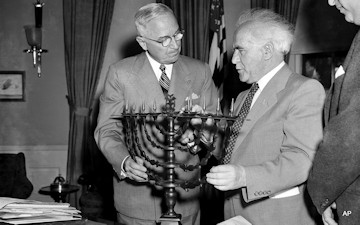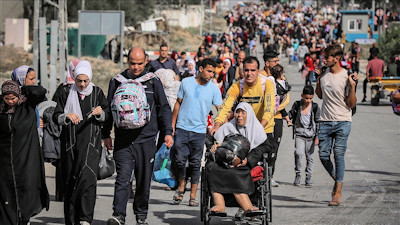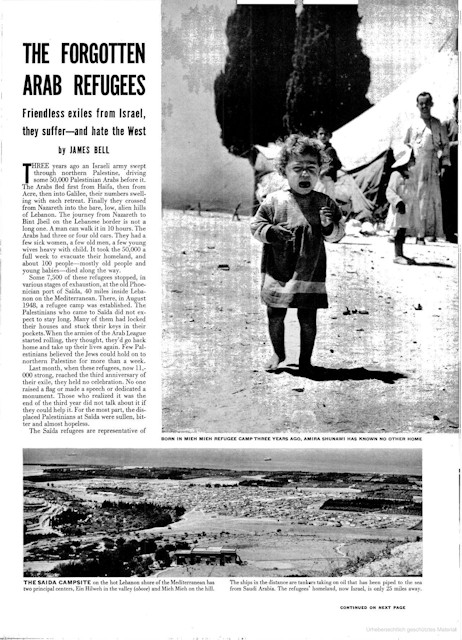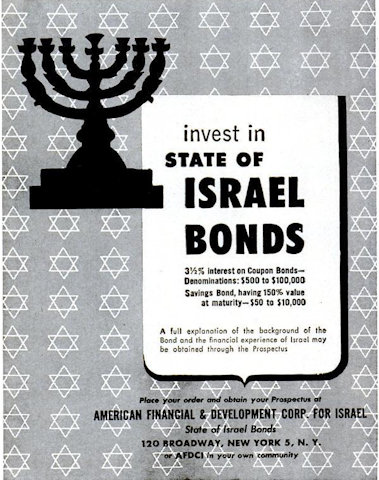
I promise this won’t become a blog solely focused on the Zionist expansion in the Middle East. But, once more unto the breach while my dander is up.
Last week I spoke of the disparity between the efforts of the Trump/Musk administration to trim bureaucratic fat from the American budget, and their continuation of the policy of pouring money and munitions into the Israeli Gaza land-grab, evidently in the hopes of expanding the Mar-a-Lago franchise. I surmise from the responses, or lack thereof, that this was one of my least popular postings. Ironically, I thought it one of my best. Perhaps people feel I am being too pro-Palestinian, or too anti-Trump.

Let me make my positions clear before I tempt fate one more time: First, I recognize that the alternative to Trump in the preceding election was too mind-numbing to contemplate. Second, any action that reduces the overstuffed bureaucratic monstrosity that is the US Government is a good thing—although I’m reserving final judgment on this until I see if it has any tangible, positive impact on the average American: It does no good to trim the fat from the budget if the money is simply reallocated to other pet projects. If I see my taxes goes down or my services improve, I’ll believe what they are doing is in the interest of the American people and not just their cronies. Until then…
Lastly, I’m not “pro-Palestinian” per se—and certainly not pro-Hamas, who appear to be little more than Iranian minions. As I noted when the Israeli War of Expansion began, I don’t have a dog in this fight (only my tax dollars). I don’t know any Palestinians, and am not sure I’ve ever met one. However, I did meet a Lebanese once and he seemed like a nice fellow. I have met plenty of Jews, but that’s a story for another day.

No, what bothers me is the hypocrisy and double-standard. I simply can’t stand it. In today’s parlance, it’s one of my triggers. It invades my safe space. And when I see the world’s professional victims, the Jews®, go around victimizing others and not expecting to be criticized for it because, you know, they’re Jews and Jews are always the victims, it pisses me off. All the more so because the spineless hacks running our government and their lap-poodle media are terrified to be critical of Israel for fear of being called anti-Semitic, or, as in the case of the “aspirationally Jewish” Musk and “Israel’s best friend” Trump, they are outright Zionists. As if being anti-Semitic was a bad thing. Ever consider that maybe, just maybe, it’s not? Maybe being anti-Semitic means you’ve given the situation some thought and realized that just because Israel is run by Zionists doesn’t exempt them from the rules of international law and common decency.
Occasionally, a news story gets released that forgoes the usual “If the Jews did it, it must be okay” narrative and attempts to convey the other side of the story. This rarely happens in a mainstream publication. But, I managed to find one that I would like to share, slightly abridged for our purposes. It is a little dated now, so some of the place names are different, and the numbers of casualties and displaced persons has changed, but the overall theme and information is still relevant. I’ll discuss the source at the end.
Forgotten Palestinian Refugees by James Bell (abridged)
Recently an Israeli army swept through northern Palestine driving some 50,000 Palestinian Arabs before it. The Palestinians fled first from Haifa, then from Acre, then into Galilee, their numbers swelling with each retreat. Finally they crossed from Nazareth into the bare, low, alien hills of Lebanon. The journey from Nazareth to Bint Jbeil on the Lebanese border is not a long one. A man can walk it in 10 hours. The Palestinians had three or four old cars. They had a few sick women, a few old men, a few young wives heavy with child. It took the 50,000 a full week to evacuate their homeland, and about 100 people—mostly old people and young babies—died along the way.

Some 7,500 of these refugees stopped, in various states of exhaustion, at the old Phoenician port of Saida, 40-miles inside Lebanon on the Mediterranean. There, a refugee camp was established. The Palestinians who came to Saida did not expect to stay long. Many of them had locked their houses and stuck their keys in their pockets. Few Palestinians believed the Jews could hold on to northern Palestine for more than a week.
Last month, when these refugees, now 11,000 strong, reached the anniversary of their exile, they held no celebration. No one raised a flag or made a speech. For the most part, the displaced Palestinians at Saida were sullen, bitter and almost hopeless.
The Saida refugees are representative of their fellows in misery—some 880,000 Palestinians who abandoned their homes and now cannot return to them. The Israeli government thus far has taken the position that Palestinians who remained peacefully in their homes (about 145,000 did) can keep them, but those who fled cannot regain their property. The refugees have little faith that [their problems will be solved], and that they remain in pawn to the many disputes between the Arab states and the Israeli government.

[They resent that] in 1945 President Truman acted drastically to get 100,000 Jewish refugees accepted into Palestine. Now no one acts drastically to solve the problems of these Palestinians whose misery is every bit as great as was that of the European Jews. One thing, however, is certain. The Palestinian refugees are not going to evaporate. They are not going to disappear if the West just ignores them. They are with us in misery and poverty—and they are beginning to hate us very much.
Recently I spent two days with these unhappy people at the Saida camp, which lies on a low hill above the Mediterranean and in a valley between the hill and the sea. The earth on which the refugees sleep is rocky and inhospitable. Their tents offer the only shade except for an occasional tree. Crude shacks have been erected by enterprising Arabs who sell vegetables and fruits. But for the most part the refugees live in old, torn tents scraped up from disintegrating surplus stocks.
The view is nice if you can see beyond the wretched tents which bake in the burning summer sun. The sea is very blue and looks cool. But the refugees, who are virtual prisoners, do not get down to it often. In the distance you can see the end of the tremendous Trans-Arabian pipeline which brings [Saudi] Aramco oil across the desert from Saudi Arabia. The sea is dotted with tankers being loaded.
The refugees at Mieh Mieh (on the hill) and Ein Hilweh (in the valley) seldom look at the sea, the pipeline and the tankers. They are too busy trying to keep alive. Each month the U.N. brings them rations for 30 days:

- Rice—14 ounces per person per month (there have been riceless months)
- Flour—22 pounds per person per month
- Cooking oil—11 ounces per person per month
- Sugar—14 ounces per person per month
- Beans—one pound, 5 ounces per person per month
Sometimes there are dried figs, and the children are given milk, ladled from a barrel. Except in the case of newborn babies, there is no clothing.
The refugees are very bitter about what they get from U.N. They are universally convinced that the headquarters up in Beirut is jammed to the walls not only with corrupt, useless bureaucrats but also with fruits of graft. “They get rich and we eat filth,” growled one young Palestinian.
The refugees feel almost totally friendless. They have no trust in the Arab governments, which, they say, are dominated by the British and the Americans. They have no trust in the West: The West thrust strangers—the Jews—into their land and drove them from it.
Occasionally one finds a refugee who thinks the American might be his friend if he (the American) knew the facts. But he does not think the American people will ever know the facts. He believes the American press to be controlled by world Zionism. Journalists who try to present the Palestinian cause, he believes, are stifled.
Ibrahim Abdul Majeed, who used to be a wealthy landholder in Safad, says he is sure that “[the] President[‘s] policy for the Jews is not the policy of the American people. If the American people knew the facts, they’d make a fuss with their government.”
The only friends the refugees think they have are the other Arab people. They strongly differentiate between Arab people and Arab governments: The latter they believe are hopeless and do not wish to help them.

The refugees say there is a lot of talk about Sunni Islam and Palestinian Nationalism.
“Even among the religious people you hear it,” says Ibrahim Majeed. “They repeat the old saying, ‘adu adu-ak sa-dee-kak.’ That means ‘the enemy of your enemy is your friend.”
In the camps, the Sunnis have been both quiet and clever. They distribute literature, fan hatreds and encourage corrupting talk about the hopeless future. It is not hard for them to convince these people, living the most degraded sort of life, that any change would be a change for the better. It could be no worse.
Muad Saleem, who used to live in Sufuria, near Nazareth, says it is true that “the enemy of your enemy is your friend.” He denies that he is a Sunni radical or that he has any love for the Islamic State.
“But,” he says, “it is you [the Americans] who have brought us to this. The British and the Americans are forcing us toward radical Islam.”
The refugees don’t want to be compensated for their lost lands and homes. They don’t want to be sent off anywhere. They want to go home to what they consider properly theirs.
“I want to go to my home,” says Said Kewash, a lean-faced man who comes from Mayroon, near the Lebanese border. “I will never change this idea no matter what they offer me. There is no place in the world, not even [the] White House, that I would take for my home.”

Muad Saleem agrees. He says he has the key to his home in his pocket and he has told his son that if he dies, the key is to be buried with him.
“If I ever know that I am going to be forced to live somewhere other than my home, I will kill myself with poison,” he says, his handlebar mustache quivering.
The refugees’ hope has just about run out. The Arab governments are not going to help them. The West is their enemy. One refugee actually said he and many of his fellows hoped that a general war would come. He said that war would bring some changes and any change would be better than life in a torn stifling tent and starvation subsistence.
“What are we going to do?” demanded Ibrahim el Matari, a bald-headed man who comes from Jaffa. He reached over and pulled a bright-faced boy of 14 into the superheated tent where we were drinking coffee. The boy’s name was Fawzi Kawash. His father died fighting the Jews.
“What of this boy?” Ibrahim demanded. “In Palestine there were schools and there was hope. What is to happen to our sons?”


That article was published in the September 17th edition of Life Magazine, in 1951. For our purposes, it is slightly abridged, and I changed the wording from “Palestinian Arab” to “Palestinian” for clarity, and changed the words “Communist” to “Sunni Islamist” and “Russia” to “Islamic State”, being more relevant to the current situation and influences in the region now, and substituted “Recently” for “Three years” at the beginning. That’s it. Everything else was verbatim. It is simply frightening how much that 74 year old article reads like a modern news report. Even the line “The Israeli government thus far has taken the position that…those who fled cannot regain their property” sure sounds an awful lot like the proposal to take Gaza, turn it into a tourist destination, and prevent the Palestinians from returning. It’s what they did in 1951 to create northern Israel.

The place names are different, being generally north of Gaza and in some cases southern Lebanon. But the plight of the Palestinians at the hand of the Jews is unchanged. Possibly even worse. How many generations need to be displaced, abused, and killed by Israeli Zionists before the world recognizes that creating an Israeli state in the middle of an Arab population was a bad idea, and that our continuing aid to the criminal regime of Benjamin Netanyahu is doing little else but slaughtering innocents and creating a deep-seated resentment among a people with a very long memory.
Let’s face facts: If it were not for the United States, Israel would not exist. Period. Without our money, our military assistance, and the threat of severe retribution should someone attack them, Israel would be an uninteresting footnote in Middle Eastern history. (For further information, see: Iron Dome; US/Israeli joint training; Scud-Missle Defense; or the 49 times the US used its veto power against UN resolutions on Israel).
Israel is a hold-over from a Cold War strategy to stop Soviet expansion, and neo-con attempts to expand US world domination while making their oil-baron friends rich (I’m looking at you Dick Cheney). It’s primary purpose was to ensure a military staging-ground for our forces should we need to take over Arab oil-fields, to protect the interests of oil companies, and continue the flow of the cheap gasoline fueling America’s domestic economic expansion after WWII. Now, evidently, it’s about expanding Mar-a-Lago. It was never about the Jews per se.

as the quoted article~ 9/17/1951
That is, until it was.
By slowly subverting the media (that is, owning it), and placing members of their tribe in key governmental positions, in time, it devolved into a “saving the Jews” refrain. Supporting Israel is a part of the “White Guilt” narrative playbook, being shorthand for saying “I’m sorry about that whole Holocaust thing, let me make it up to you”, or “I’d love to criticize Israel, but you know, that would be anti-Semitic.”
To which, I say, so what? They’re the wrong people, in the wrong place, at the wrong time. Every time. Let’s call that a “brief history of the Jewish people”.
I can’t help but wonder if, 74 years from now, some frustrated White American taxpayer is going to be thumbing through an old magazine he found at a Goodwill, dated February 18, 2025, and see a story about the current Israeli War of Expansion and the suffering in Gaza, and think “Holy crap, it’s still going on!”
Then again, maybe by 2099 it will no longer be called “Gaza”, it will be “Disneyland in Israel”.
Amerika Erwache!

“We do not believe that it should be our concern to tell other peoples and countries how to live or manage their affairs, so long as they do not threaten vital Aryan interests.”


Leave a Reply